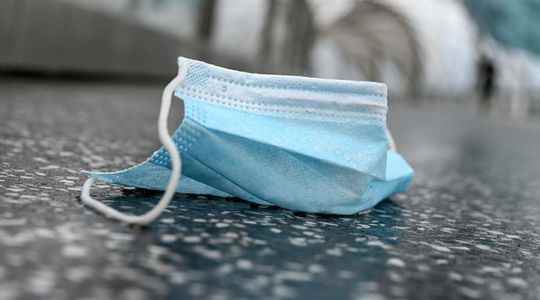It’s time for relief. Guest of 1 p.m. on TF1 this Thursday, March 3, Prime Minister Jean Castex unveiled two relaxation measures called upon to modify our daily lives, from March 14: the end of wearing a mask in almost all places where he was compulsory and the end of the vaccination pass.
“The situation is improving thanks to the decisions we have taken,” he said. The health pass will however remain compulsory in medical establishments, such as hospitals and nursing homes, as well as the vaccination obligation which applies to caregivers, he specified. Infectiologist and Covid-19 referent medical director at the Raymond-Poincaré hospital in Garches (Hauts-de-Seine), Benjamin Davido believes that the time is right to lighten health measures.
L’Express: How do you welcome the measures announced by Jean Castex?
Benjamin Davido: I think the easing of health restrictions makes sense. Today, we have fifteen days of hindsight on certain relief measures – in particular in restaurants and with the reopening of nightclubs – even as the decline in hospitals continues. The French are largely covered and this will lead to herd immunity. On the government side, there is a desire to communicate on a way out of the crisis when school holidays return, moreover one month before the presidential election. Afterwards, why not follow up on other measures that will go in the direction of what I call “life after”?
On the other hand, I did not understand the end of the vaccination pass in favor of a health pass – compulsory in health establishments. I find that quite confusing in the minds of the French. This may also encourage some not to be vaccinated.
If I agree with the relief announced by the executive, I hope to see in President Emmanuel Macron’s campaign more sustainable strategies to fight against Covid-19. I expect consistency over time.
Isn’t the end of indoor mask wearing coming too soon?
I do not think so. Today the rule is to be protected. When everyone has come across the virus, there will be this vaccine and natural immunity. Consequently, the virus will have difficulty circulating, which is what is happening today, since we are recording around 50,000 contaminations daily. From that moment, the risk of being contaminated for immunocompromised people drops. Also, the probability of developing a severe form and being hospitalized after contracting the Omicron variant is lower.
Two years after the start of the pandemic, we are coming up with almost à la carte solutions: Novavax vaccines are coming, we have monoclonal antibodies for prevention and treatments… The idea is not to weigh down the measures on fragile and vulnerable people, but to refocus the management of the health crisis on these people. We have to plan for something a little newer and a little more acceptable to the population as a whole.
Are you really observing the end of a wave in the hospital?
I’ll give you this example: the only Covid-19 patient we were sent to today was actually flu positive. The demand is less and this is consistent with the idea of the importance of the management of infectious diseases in general. As we know, the flu epidemic often stops at the end of March. However, if the end of Covid-19 follows this same parallel, this means that we will have to manage both with strategies that last over time and probably modeled on the same populations. More generally, when you have new results and new tools, you can’t manage the crisis as before, it doesn’t make sense.
How do you see the evolution of the pandemic in the coming weeks or months?
I am convinced that we will have a fairly quiet summer in terms of health. Obviously, I always remain very cautious: no one had seen the Delta wave last summer. Even if the conditions were met to create a new wave, they would be counterbalanced by the collective immunity which should be obtained at the end of April. At the same time, we must also focus on the indicators that count now: the number of patients hospitalized and in intensive care. When we register less than 1,500 people in intensive care, it will already be satisfactory [NDLR : contre plus de 2300 actuellement].
In addition, it is important to watch the number of deaths in order to be more demanding for the next wave. We never talk about this figure because it is shameful, especially in a country with such means. It is unfortunately still very important daily – 186 dead Wednesday March 2. One day it will be necessary to take the dead into consideration and put the church back in the middle of the village. This figure should be included in the health policy criteria.
